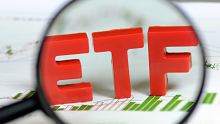
An industry-wide, systems-driven solution that more easily allows mutual fund dealers to gain access to an exchange to sell exchange-traded funds (ETFs) is expected to be unveiled next month.
“We are now at the point where the process is being mapped in detail,” says Sandra Kegie, executive director of the Federation of Mutual Fund Dealers (FMFD). “We hope to be able to announce the success of this project at the federation’s April 28 conference.”
For more than a year, a working group made up of members of the FMFD and the Canadian ETF Association (CETFA) has been meeting with dealers, the TMX Group Ltd., CDS Clearing and Depository Services Inc., National Bank of Canada, FundSERV Inc. and some back-office service providers, as well as a host of regulators, including the Mutual Fund Dealers Association (MFDA), the Ontario Securities Commission, the Investment Industry Regulatory Organization of Canada (IIROC) and the Autorité des marchés financiers, says Kegie.
Although MFDA members have always been allowed to sell ETFs, they’ve been hampered mainly because they do not have access to an exchange, unlike IIROC members. All must also have appropriate record-keeping of transactions of trades, says Howard Atkinson, chairman of CETFA and president of Horizons ETFs Management (Canada) Inc.
Atkinson says National Bank Correspondence Network (NBCN) has come up with what it believes is an industry-wide capability to provide that transaction solution and has been testing it.
“What is significant about this is that each MFDA member could then use its own record-keeping system in conjunction with NBCN,” he says. Currently, the primary record keepers and software providers are Univeris Corp. and RPM Technologies Inc.
The process can be adapted to anyone’s system/services both on the MFDA or IIROC side – if they are interested in participating.
Best practices have been written for MFDA dealers that cover ETFs – everything from business structures, qualifications, business conduct, disclosure documentation, remuneration, supervision, product knowledge and business continuity, Kegie says. A meeting in late March has been scheduled with regulators to go over these issues.
Having access to an exchange will mean an opportunity to compete evenly for a share of the mutual fund assets that are currently being sold by MFDA-only advisors, says Atkinson.
Currently, the mutual fund industry has assets under management (AUM) of $1.18 trillion; CEFTA statistics show ETFs with about $78.2 billion in AUM.
The MFDA recently said it was looking into ways to provide better proficiency for MFDA advisors who want to sell ETFs. A working group has been put together to look into this, says Karen McGuinness, MFDA’s senior vice-president, member regulation.